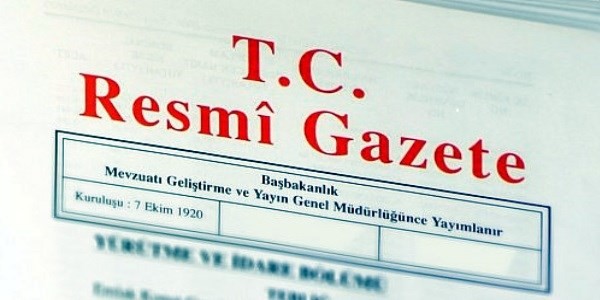Statutory Leaves Under Turkish Labor Law

Under Turkish Labor Law (Law no. 4857) there is a variety of leaves provided to the employees. Availability of the leaves and their length is determined in different articles of the Turkish Labor Law. Types of leaves under the Turkish labor law are as follows;
Annual Leave
In Turkey, all employees are entitled to have a paid annual leave with the condition of completing minimum one year of service (including trial period) in the workplace. The right to annual leave with pay cannot be waived. Turkish Labor Law regulates the conditions, length and the application of annual leave under the articles between 53 and 61.
Length of the annual leave changes in accordance with the length of service of the employee. As per article 53, the length of the employee’s annual leave with pay shall not be less than;
a) Fourteen days if his length of service is between one and five years, (five included),
b) Twenty days if it is more than five and less than fifteen years,
c) Twenty-six days if it is fifteen years and more (fifteen included)
These determined minimum annual leave periods can be extended by the employment contracts. Moreover for employees below the age of eighteen years old (18) and above the fifteen years old (50), the length of the annual leave cannot be less than twenty (20) days.
Due to their nature of work, rules on the annual leave are not applicable to the seasonal works. Calculation of length of services plays crucial importance in the entitlement of the annual leaves. In accordance with article 55 of the Turkish Labor Law, following periods are regarded within the length of services;
a) Days on which the employee fails to report to work owing to an accident or illness (however, time which exceeds the period foreseen in subsection I (b) of Article 25 shall not be treated as worked[1])
b) Days on which the female employee is not permitted to work before and after her confinement, in accordance with Article 74
c) Days on which the employee is unable to report to work through having been called up for military exercises or for the performance of a statutory obligation, other than compulsory military service, (up to a maximum of 90 days in a year)
d) Fifteen days of any period during which the employee has not worked because of the temporary but interrupted suspension of operations for longer than one week owing to force majeure, on condition that he has subsequently resumed work;
e) Periods reckoned as having been worked, envisaged in Article 66[2];
f) Weekly rest days and national and public holidays;
g) Half-days of leave granted in addition to Sundays to employees working in radiological clinics, in accordance with the regulation issued under Act No. 3153;
h) Days on which the employee is unable to report for work because of having to attend meetings of mediation and arbitration boards, acting as an employees’ representative on such boards or before a labor court, serving as an employees’ or union representative on boards, committees or meetings organized under the relevant legislation or attending conventions, conferences or committee meetings of international organizations dealing with labor matters;
i) Up to three days’ leave on the occasion of the employee’s marriage and up to two days’ leave on the occasion of his parent’s, spouse’s, sister’s or brother’s or child’s death;
j) Other leave granted by the employer;
k) Annual leave with pay granted to the employee in pursuance of the application this Act.
As per article 56, in the existence of mutual agreement between employee and employer, annual leave period can be divided into three parts which one of the parts cannot be less than (10) ten days. Other types of paid or unpaid leaves such as sick leave cannot be deducted from annual leave period. National holidays, public holidays and weekly rest days also cannot be included in the annual leave period. Upon the request of the employee, on the condition of providing documentary evidence showing he/she will spend annual leave at a place other than where the workplace is located, employer is entitled to grant (4) four days unpaid leave.
Metrnity Leave
Maternity and nursing leave is regulated by the article 74 of the Turkish Labor Law. Accordingly all female employees are entitled to maternity leave from work (8) eight weeks before and (8) eight weeks after the confinement. In the case of multiple pregnancies, additional (2) two weeks added to the entitled (8) eight weeks leave before the confinement. Upon her request, a female employee may continue to work until the (3) three weeks before the delivery with the written consent of medical doctor. In such case the unused period of maternity leave is added to the post confinement period. During the maternity leave, employer is not required to pay monthly salary of the employee. However after the maternity leave period, female employees receive temporary incapacity allowance from the Social Security Institution. Temporary incapacity allowance is calculated on the basis of two third of gross daily income of the employee for the whole maternity leave period.Upon the request of the employee, an unpaid maternity leave up to (6) six months might be granted after the expiry of the maternity leave. Unpaid maternity leave is not considered within the employee’s one year service.
Nursing Leave
Article 74 of the Turkish labor law also regulates the nursing leaves of the female employees. All female employees are allowed daily a total of one and half hour nursing leave from their return to work until their infant turns (1) one year old. Nursing leave is considered within the daily working time. Employee herself decides when and in how many parts she will use the nursing leave.
Marriage Leave
In the event of marriage, as per article 46 (b) of the Turkish labor law, employees are entitled to (3) three days paid leave.
Berevament Leave
As per article 46 (b) of the Turkish labor law, employees are entitled to (3) three days of paid leave in the event of the death of the employee’s mother, father, spouse, brother or sister, and child.
Sick Leave
In accordance with article 46 ( c ) of the Turkish labor law, all employees are entitled to maximum one week paid sick leave upon production of confirmative medical report. Sick leave might be extended. Extendedsick leave is granted on unpaid basis. In the case of sick leave that exceeds (6) six weeks beyond the notice periods determined in Labor Law, employment contract may be terminated without notice.
Notice periods are determined under the article 17 of Labor Law. Minimum notice periods are set on the basis of length of employment. Accordingly;
| Less than (6)six weeks | (2)two weeks |
| Between (6)six weeks and (18)eighteen weeks | (4)four weeks |
| Between (18)eighteen weeks and (36) thirty-six weeks | (6)six weeks |
| More than (3( three years | (8)eight weeks |
Employers might have right to terminate employment contracts without notice in the case of sick leave that exceeds six weeks beyond the above notice periods. For instance for an employee who using sick leave and have worked less than six weeks, employer has the right to terminate employment contract without notice after (8) eight weeks. (2 weeks notice + 6 weeks sick leave)
Leave for Seeking a New Job
As per article 27, during notice period, all employees are entitled to use no less than two hours times-off within working hours to seek new job. Job seeking hours might be merged and can be used at one time. If the employee works during the job seeking hours, employer should compensate job seeking hours with twice amount of salary in addition to employee’s normal salary.
Summary
TURKISH LABOR LAW (You will be directed to the https://www.ilo.org) Law No. 4857 Date of Enactment: 22.05.2003 Published in the Official Gazette 0n 10 June 2003, No. 25134
[1] Law no.4857, Art. 25. – The employer may break the contract, whether for a definite or indefinite period, before its expiry or without having to comply with the prescribed notice periods, in the following cases:
I. For reasons of health
a) If the employee has contracted a disease or suffered an injury owing to his own deliberate act, loose living or drunkenness, and as a result is absent for three successive days or for more than five working days in any month.
b) If the Health Committee has determined that the suffering is incurable and incompatible with the performance of the employee’s duties. In cases of illness or accident which are not attributable to the employee’s fault and which are due to reasons outside those set forth in (a) above and in cases of pregnancy or confinement, the employer is entitled to terminate the contract if recovery from the illness or injury continues for more than six weeks beyond the notice periods set forth in article 17. In cases of pregnancy or confinement, the period mentioned above shall begin at the end of the period stipulated in Article 74. No wages are to be paid for the period during which the employee fails to report to work due to the suspension of his (her) contract.
[2] Law no.4857, Art. 66 – The following periods shall be considered as the employee’s daily working hours:
a) the time required for employees employed in mines, stone quarries or any other underground or underwater work to descend into the pit or workings or to the actual workplace and to return there from to the surface
b) travelling time, if the employee is sent by the employer to a place outside the establishment,
c) the time during which the employee has no work to perform pending the arrival of new work but remains at the employer’s disposal,
d) the time during which the employee who ought to be performing work within the scope of his duties in the establishment is sent on an errand for his employer or is employed by him in his household or office, instead of performing his own duties,
e) the time allowed to a female employee who is a nursing mother to enable her to feed her child,
f) the time necessary for the normal and regular transportation of groups of employees engaged in the construction, maintenance, repair and alteration of railways, roads and bridges to and from a workplace at a distance from their place of residence.
Time for transportation to and from the establishment which is not a requirement of the activity but is provided by the employer solely as a form of amenity shall not be regarded as part of the statutory working time.







How can someone collect the SGK retirement payment when leaving Turkey?
I’ve been working for 8 years and I will leave at the end of May. There’s no pension agreement between Turkey and my home country. What should I do before leaving the country?
Good day
Is it a requirement in Turkey for an expatriate to deposit Basic Travel Allowance Deposit of 3, 000 USD through moneygram during work visa application?
Hello,
There is no such a thing for work permit application as depositing money through moneygram. Please be careful, it could be a scam.
Are you satisfied with the answers we have given to your questions? ExpatGuideTurkey would like to know your feedback. Please leave a comment on our webpage: https://g.page/r/CT9i2JXthUlOEAI/review
Very satisfied
I was told that employees over the age of 5 are entitled to more than 20 days of annual leave. Is this correct?
Hello,
According to the Law, for employees who have been working for more than 5 years at workplace are entitled to have 20 days of annual leave.
Thank you,
Are you satisfied with the answers we have given to your questions? ExpatGuideTurkey would like to know your feedback. Please leave a comment on our page. https://g.page/r/CT9i2JXthUlOEAI/review
My bro bookmarked this web page for me and I have been going through it for the past several hours. This is really going to assist me and my classmates for our class project. By the way, I like the way you write.